Which platform to choose in 2023: Hybrid, Native, or Cross-Platform?
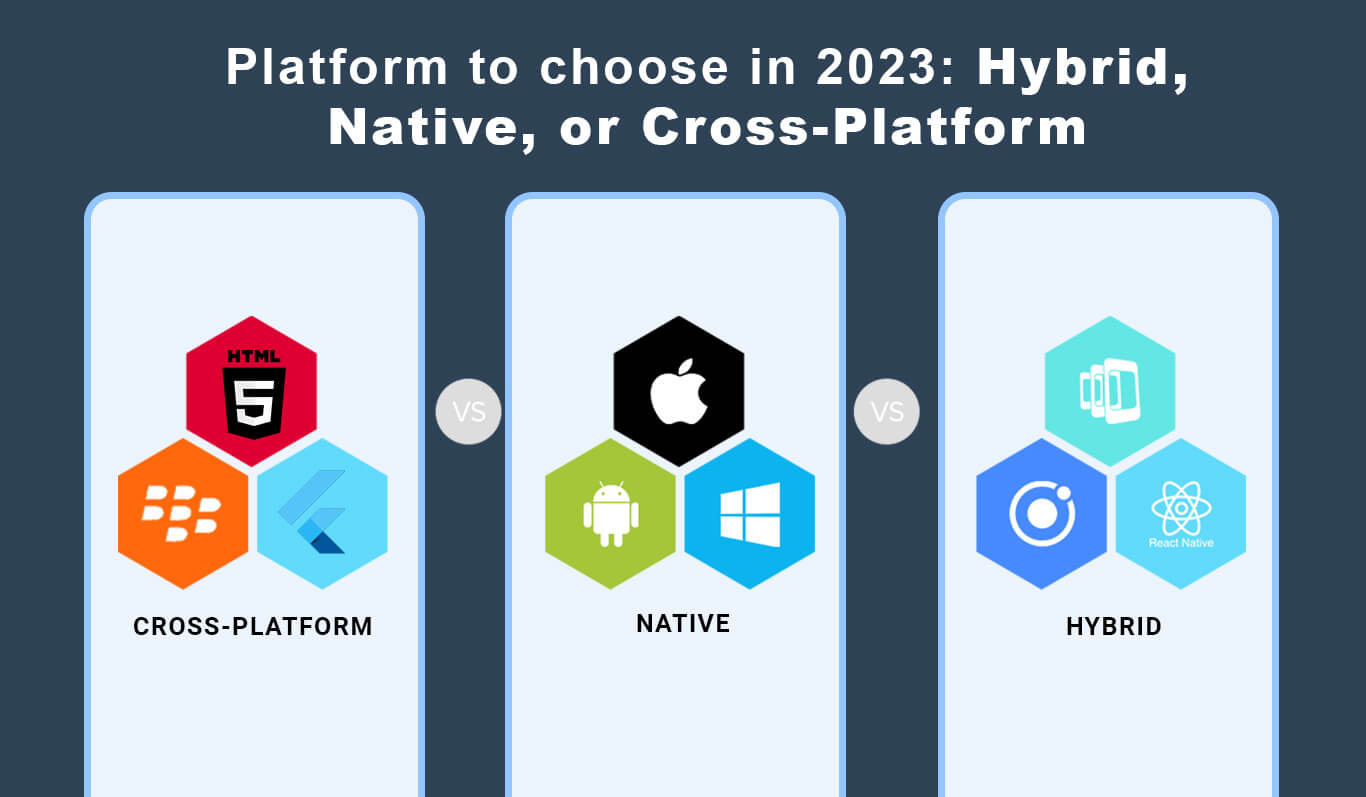
The use of mobile applications has become a must-have for companies, just like their website and social media accounts. There are millions of people who use mobile devices on a daily basis. In the last decade, a wide variety of web-enabled devices have become indispensable tools for communication, information, and entertainment all over the world. Nearly 55 percent of all web traffic today comes from mobile devices, and mobile connections account for even more views in mobile-first markets such as Asia and Africa.
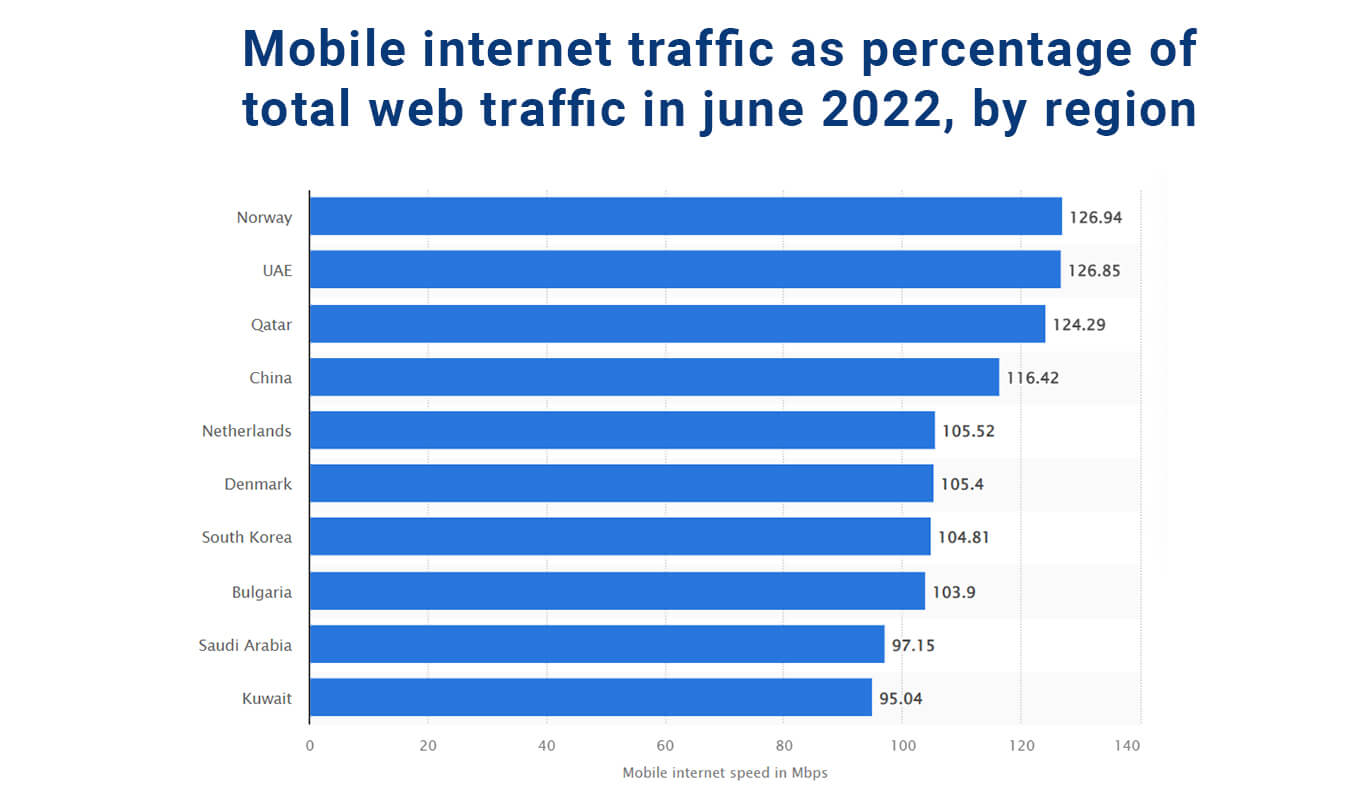
When it comes to mobile app development, there are many approaches you can take that can put you in a bind. There are three major frameworks to choose from: native, hybrid, and cross-platform. In the end, however, businesses need to select a technology that enables them to achieve their objectives. Let's examine each and figure out which is best for you in this blog.
Native app development
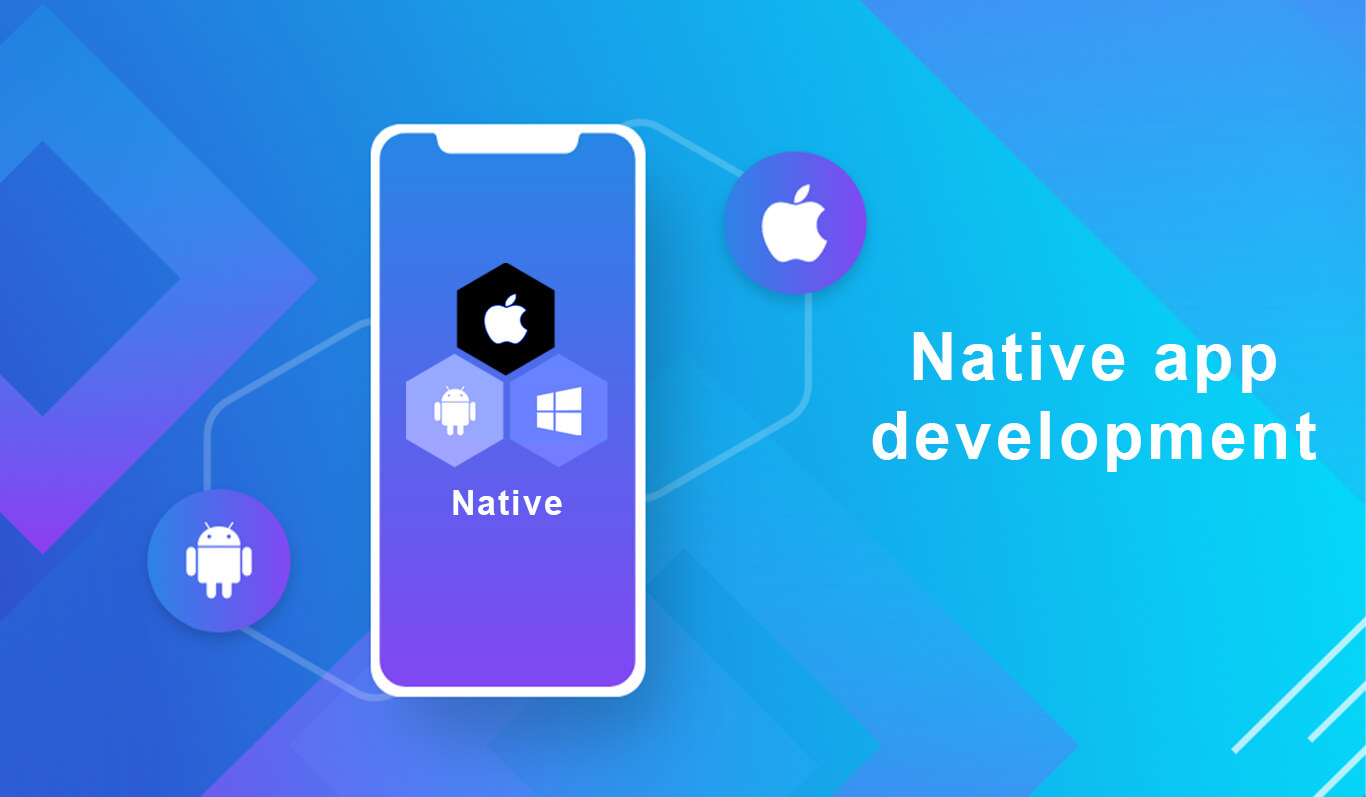
Native app development is the process of developing applications that run exclusively on a particular operating system (OS). Operating systems support the programming languages, tools, and frameworks used to develop these apps.
For example, if you want to create an iPhone or iPad native app, you will use Swift or Objective-C and the iOS SDK (Software Development Kit). To create a native Android application, you would use the Android SDK and Java or Kotlin programming languages.
Apps that are native to a device have several advantages over those that aren't. Since they are optimized for the device and OS on which they are running, they are typically faster and more responsive. Moreover, they can access all hardware and software features of the device, including the camera, GPS, and push notifications.
Why should you choose to build native apps?
Businesses that are looking to create high-performance, feature-rich, and monetizable apps can benefit from native app development.
Performance: The efficiency and responsiveness of native apps is typically higher, since they are optimized for the specific device and operating system you are using.
Device features: In native apps, all hardware and software functions, such as the camera, GPS, and push notifications, are fully accessible.
Experience as a user: Due to their design and use of native UI elements, native apps typically offer a better user experience.
Functions offline: Apps that are native to the device work offline since they are installed on the device and are not dependent on an internet connection.
Security: The functionality of native apps is not dependent on a web server, which can make them more secure.
Monetization: Various methods are available for monetizing native apps, such as in-app purchases, subscriptions, and advertising.
App store visibility: A native app is listed in app stores, making it easier for users to discover and download them.
What are the cons of developing native apps?
Time and cost efficiency:
As a consequence of requiring separate development for each platform (iOS, Android, etc.) you want to support, native app development can be more time-consuming and costly than other approaches.
Upkeep:
Updates and maintenance of native apps are more difficult due to the need to make changes separately for each platform.
A limited audience is targeted:
Apps developed for native platforms can only be used on that platform, so only a limited number of people are able to use them.
Device fragmentation:
The app may not work on all devices and versions of the operating system because there are so many options available.
Hybrid app development
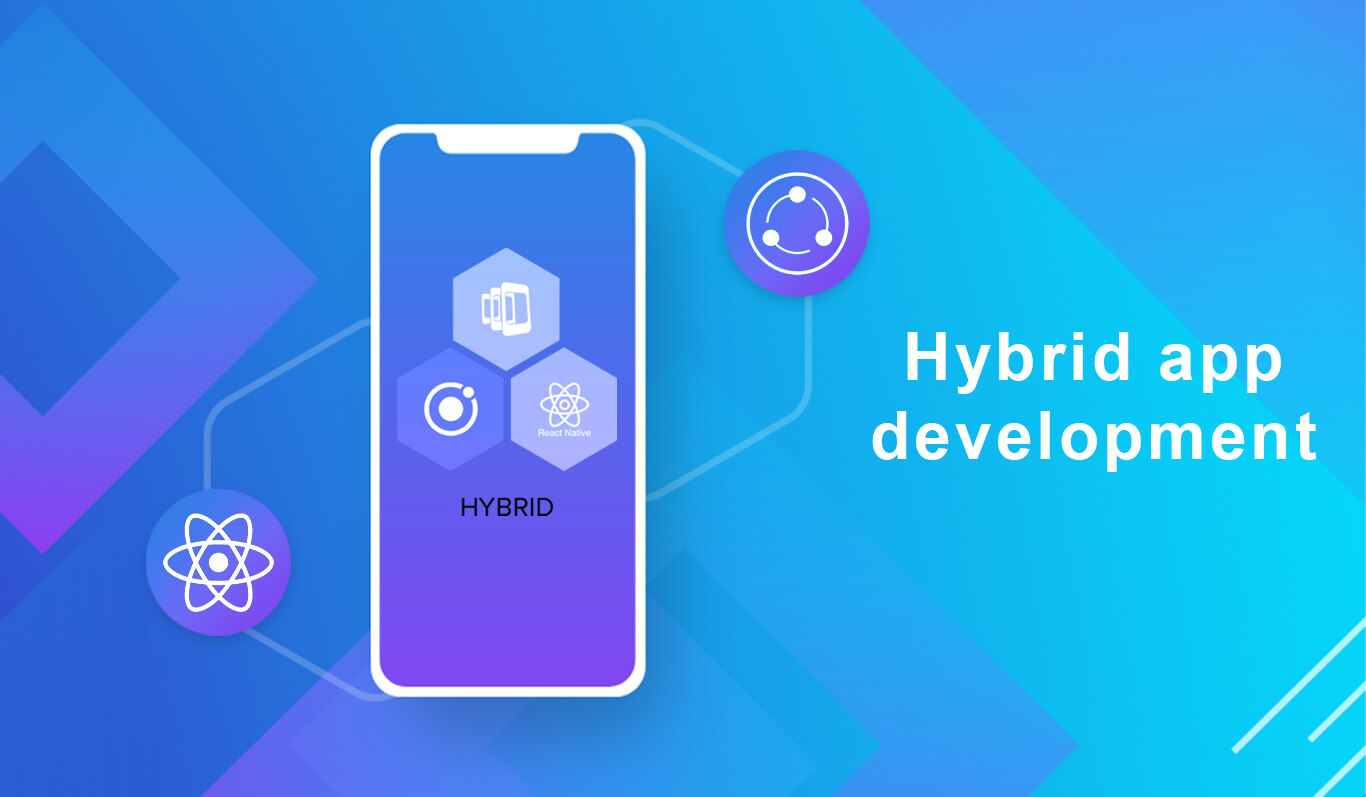
App development that combines native app and web app features is hybrid app development. Hybrid apps are web apps packaged as native apps. Just like a native app, this allows the app to be distributed and installed through app stores. In contrast with native apps, which are built for a particular platform, a hybrid app is built using web technologies (HTML, CSS, and JavaScript) that are cross-platform and can run on a variety of devices.
A hybrid app's main advantage is that it can be developed in a single codebase and used on multiple platforms, saving both time and resources compared to native apps. As with native apps, hybrid apps can access many hardware and software features of the device.
Hybrid apps run using a webview, which adds additional overhead and slows down the process. In addition, hybrid apps may lack native user interface elements, which may make them less intuitive.
Why should you develop hybrid apps?
Compatibility with multiple platforms: With hybrid apps, you can run them on multiple platforms (like iOS, Android, and Windows) using a single codebase, saving you time and resources.
Device features: There's a lot you can do with hybrid apps, like accessing the camera, GPS, and push notifications.
App store visibility: Users can discover and download hybrid apps through app stores.
Reduced development time and cost: It's faster and cheaper to develop hybrid apps since one codebase can be used across multiple platforms, unlike native apps.
Easy to maintain: With hybrid apps, changes can be made to one codebase, then deployed across all platforms.
Monetization: Hybrid apps can be monetized through various methods, such as in-app purchases, subscriptions, and advertising.
Cross-platform app development
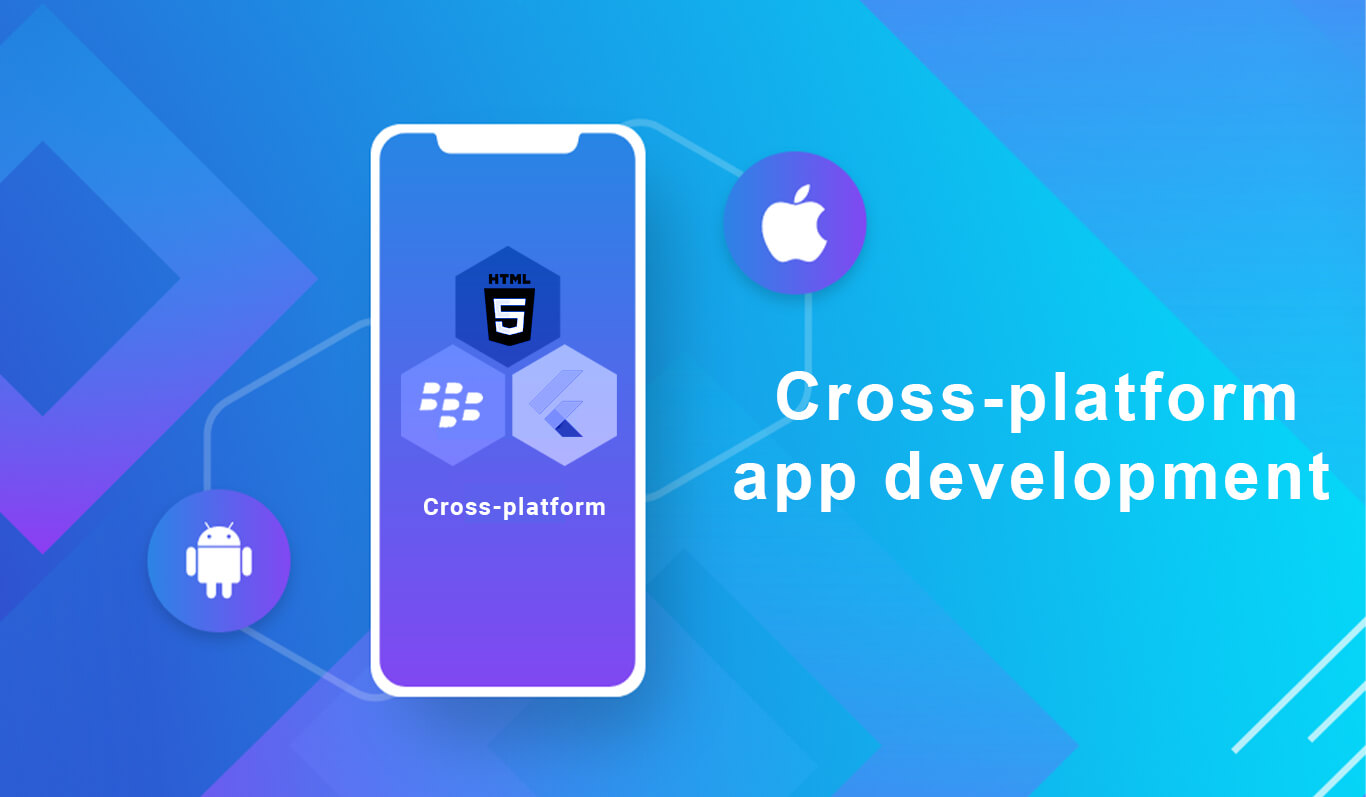
Development of cross-platform apps means creating apps that run on iOS, Android, and Windows using a single codebase.
Developers can create cross-platform apps using frameworks that let them compile and deploy to multiple platforms with a single codebase. Xamarin, Flutter, and React Native are all popular cross-platform frameworks.
Developers can create cross-platform apps without having to create separate codebases for each platform, which is a major advantage of cross-platform app development. It's easier and faster than developing native apps for each platform, which takes a lot of time and resources.
Businesses that don't need the highest level of performance or the smoothest user experience can benefit from cross-platform app development.
Why should you develop cross-platform apps?
Time and cost savings:
Since cross-platform apps can be used across multiple platforms, cross-platform app development is faster and cheaper than native app development.
Reusable code:
The advantage of cross-platform app development is that developers can reuse code across different platforms, which can reduce development time.
Access to a wider audience:
Businesses can reach a wider audience with cross-platform apps by creating apps that run on different platforms.
Easy to maintain:
Having a single codebase that can be updated and deployed across all platforms makes cross-platform apps easier to update.
Monetization:
Mobile apps can be monetized through in-app purchases, subscriptions, and ads.
App store visibility:
App stores can make it easier for users to find and download cross-platform apps.
Are hybrid and cross-platform development the same?
Creating mobile apps that run on multiple platforms is possible with hybrid and cross-platform development.
In hybrid app development, you combine the features of native app development and web app development, using web technologies (HTML, CSS, and JavaScript) that can run on multiple platforms. It's packaged into a native app container and distributed through app stores.
Meanwhile, cross-platform app development means creating apps for multiple platforms with a single codebase. There are several ways to develop cross-platform apps, including native apps, hybrid apps, and using cross-platform frameworks like React Native, Flutter, and Xamarin.
It's important to remember that hybrid app development is about making a single app and packaging it into a native container, whereas cross-platform app development is about building apps that run on multiple platforms with the same codebase, regardless of how you do it.
The cons of hybrid and cross-platform development
Performance:
There's a chance that cross-platform and hybrid apps won't perform as well as native apps because they're not optimized for a specific platform and don't access all the hardware and software features.
User experience:
Due to the lack of native UI elements, cross-platform and hybrid apps may have a less intuitive user interface.
Access to advanced features:
Because cross-platform and hybrid apps rely on frameworks or technologies that may not be able to access all of the device's hardware and software capabilities, both may have limited access to advanced features.
Maintenance:
Cross-platform apps and hybrid apps are easier to update and maintain than native apps, but they still need more work than web apps, which can be updated and deployed from a single codebase.
App store approval:
In the app store, cross-platform and hybrid apps have to go through a review process, which can take a while.
Although, it's a good idea to use both of these approaches if you want your apps to run on multiple platforms and take advantage of lots of devices.
How to choose between native, hybrid, and cross-platform development approaches?
Consider your project's specific requirements and goals, along with your budget and resources, when choosing between native, hybrid, or cross-platform app development approaches.
Based on performance: It's best to develop native apps if performance is a top priority, since they allow developers to customize the app for specific platforms and make full use of the device's hardware and software. A hybrid or cross-platform app may not perform as well as a native app.
Based on functionality: Native app development may be the best choice if the app needs to access a wide range of hardware and software features, as it lets developers use all the device's features. Apps developed in hybrid or cross-platform environments may also offer access to many device features, but may not provide the same level of functionality as native apps.
Based on user experience: Native app development may be a wise choice if a seamless and intuitive user experience is required, as it complies with the platform's user interface guidelines and uses native UI elements. User experience may not be as good with hybrid and cross-platform app development.
Based resource savings: It may be best to develop hybrid apps or cross-platform apps if time and cost efficiency are a priority, since they allow developers to create a single codebase that can be used across multiple platforms, saving time and resources in comparison to native app development.
Based on monetization approaches: All three approaches (native, hybrid, and cross-platform) offer options for monetizing apps through in-app purchases, subscriptions, or advertising.
FAQs
Which is best - native or cross-platform development?
Apps developed with specific platform requirements perform better and faster than cross-platform and other types of non-native apps. Cross-platform, on the other hand, is a better choice when you want to use multiple platforms and multiple devices at half the resource cost.
Is multi-platform app development the future?
Due to the fact that one source code can be used across multiple platforms, developing cross-platform mobile applications is significantly faster. Flexible systems allow developers to create constantly-changing user experiences.
Which app development technologies will be popular in the future?
- Cross-platform App Development
- No Code/Low Code Development
- Personalization with AI
- Chatbot support
- Custom Enterprise Applications
- Cashless with Mobile Wallets
- AR & VR for Immersive Experiences
- Declarative Programming
What are some examples of popular native apps?
- Mighty Networks
- Discover
- Duolingo
- Hive
- Adobe Lightroom
- Mint
What are some popular examples of hybrid apps?
- Gmail
- Evernote
- Cryptochange
- Justwatch
What are some popular examples of cross-platform apps?
- Firefox
- OpenOffice
- TeamViewer
- Adobe Reader
- Chrome
How much does native app development cost?
The tentative cost to build a native mobile app is $40,000 to $150,000 and can exceed $300,000 in some cases.
How much does hybrid and cross-platform app development cost?
The complexity of the application as well as the features you wish to see in your solution may result in a price range between $25k and $45k, although it may exceed in some cases.
Request a Quote
Categories
Popular posts
Best Practices for Software Product Engineering Every CTO Should Implement
2023-14-18How to Build Your Own On-Demand Carpooling App Services?
2023-08-25How to Start an On-Demand Fuel Delivery Business: A Comprehensive Guide
2023-07-28Empowering Miners: How Fleet Management Apps are Transforming the Mining Industry?
2023-07-21A Complete Guide to Develop a Food Delivery App for Restaurants in 2023
2023-07-08Mobile Apps Transforming the Travel Industry: A Game-Changer in Travel Planning and Experience
2023-07-07
